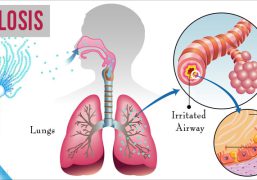Steroidal therapy
Steroidal therapy refers to the use of medications known as corticosteroids to treat a variety of medical conditions. Corticosteroids are synthetic versions of the hormones that are naturally produced by the adrenal glands, which help regulate inflammation and the immune system.
Steroidal therapy can be used to treat a wide range of conditions, including:
- Inflammatory conditions: such as asthma, rheumatoid arthritis, inflammatory bowel disease, and skin disorders.
- Autoimmune conditions: such as lupus and multiple sclerosis.
- Cancer: corticosteroids can be used to reduce inflammation and swelling caused by cancer and its treatment.
- Allergic reactions: such as severe allergic reactions (anaphylaxis) or asthma attacks.
- Endocrine disorders: such as adrenal insufficiency.
Steroidal therapy is typically prescribed in the form of pills, inhalers, creams, or injections, depending on the specific condition being treated. The dosage and duration of treatment will depend on the condition being treated, the severity of the symptoms, and other factors such as the patient’s age and overall health.
While steroidal therapy can be effective for many conditions, it can also cause side effects such as weight gain, mood changes, increased blood sugar levels, and an increased risk of infections. It’s important to work closely with a healthcare provider when taking steroidal medications, and to follow the prescribed dosage and instructions for use.






